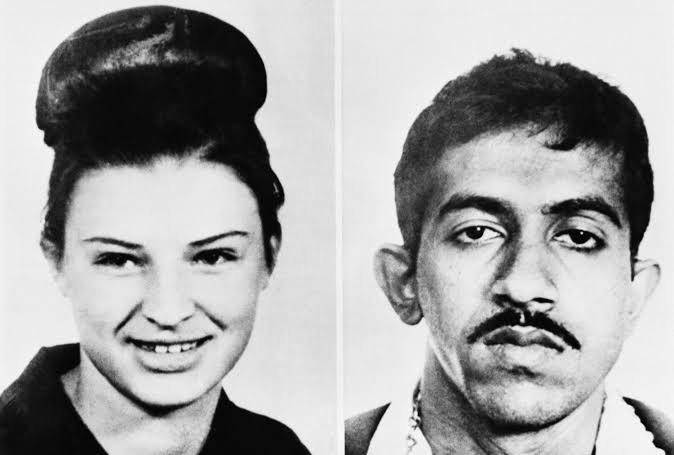In 1969, a man called Prosenjit Poddar met a woman, Tatiana Tarasoff at a dance class at U.C Beekeley. After going on some dates, Tatiana broke it off and Poddar became obsessed with her and started stalking her. This led to him seeking therapy at the university medical center. https://twitter.com/vilebillionaire/status/1294380587751546883">https://twitter.com/vilebilli...
During his sessions with his therapist( Dr Lawrence Moore) Poddar stated that he would kill Tatiana *he never named her*.
Dr Moore said if he continued he would have him hospitalized and Poddar stopped showing up after 8 sessions.
Dr Moore said if he continued he would have him hospitalized and Poddar stopped showing up after 8 sessions.
Dr Moore and Dr Harvey (his supervisor) wrote a letter to campus police who interviewed Poddar, he claimed none of these threats were made and he would stay away from Tatiana. Dr Harvey then ordered all therapy notes destroyed.
Btw he was living with her brother, odd right?
Btw he was living with her brother, odd right?
On October 27, 1969, Poddar confronted Tatiana at home. She tried to run, he pursued her and then stabbed her to death with a kitchen knife. Despite attempting to plead guilty to manslaughter, Poddar went on trial for 1st-degree murder and was found guilty of 2-degree murder.
He served only 5 years.
Shortly after Poddar& #39;s release, Tatiana parents launched a civil suit against the therapists and UC Berkeley. The suit stated that the defendants should have warned Tarasoff directly about the death threats which might have saved her life.
Shortly after Poddar& #39;s release, Tatiana parents launched a civil suit against the therapists and UC Berkeley. The suit stated that the defendants should have warned Tarasoff directly about the death threats which might have saved her life.
Moore & Powelson defended their actions stating their duty to their patient over a private third party and the trial court agreed.After the plaintiffs appealed this,the California Supreme Court reviewed the case and handed down a landmark decision in psychology history in 1976
Simply, the Tarasoff law states that "mental health professionals have a duty to protect individuals who are being threatened with bodily harm by a patient"
While this law is not universal, it has helped in guaging the limits to which therapists can protect client confidentiality
While this law is not universal, it has helped in guaging the limits to which therapists can protect client confidentiality
The flaw with the Tarasoff law is defining & measuring violence. The therapist has to decide the seriousness of the threat being made. Is the risk </> 50%? And how does a therapist decide that?
Many things are said in anger during sessions. Do I as a therapist act on each?
Many things are said in anger during sessions. Do I as a therapist act on each?
It is a very delicate situation eg Poddar had no prior criminal history and the therapists did report to campus police. Would Poddar not have killed her if he hadn& #39;t been threatened and stopped his sessions? We will never know.
Therapists tread a thin line in such cases between breaching client confidentiality and protecting a potential victim. If a report is made the client can sue for breach and say the threats were harmless, if the victim is harmed the therapist is sued for not reporting.
As such Therapy is a very delicate job that requires training, practice and supervision and constant review of clients on a case by case basis.
The Tarasoff case changed the course of history in the mental health system, it showed that no one knows it all and each decision counts
The Tarasoff case changed the course of history in the mental health system, it showed that no one knows it all and each decision counts
What are your thoughts on the Tarasoff Law?

 Read on Twitter
Read on Twitter


